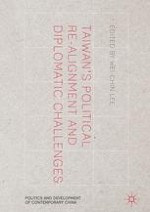2019 | OriginalPaper | Buchkapitel
5. Party’s Issue Competence and Electoral Decisions in Taiwan’s 2012 and 2016 Presidential Elections
verfasst von : Ching-hsin Yu, T. Y. Wang
Erschienen in: Taiwan’s Political Re-Alignment and Diplomatic Challenges
Verlag: Springer International Publishing
Aktivieren Sie unsere intelligente Suche, um passende Fachinhalte oder Patente zu finden.
Wählen Sie Textabschnitte aus um mit Künstlicher Intelligenz passenden Patente zu finden. powered by
Markieren Sie Textabschnitte, um KI-gestützt weitere passende Inhalte zu finden. powered by
